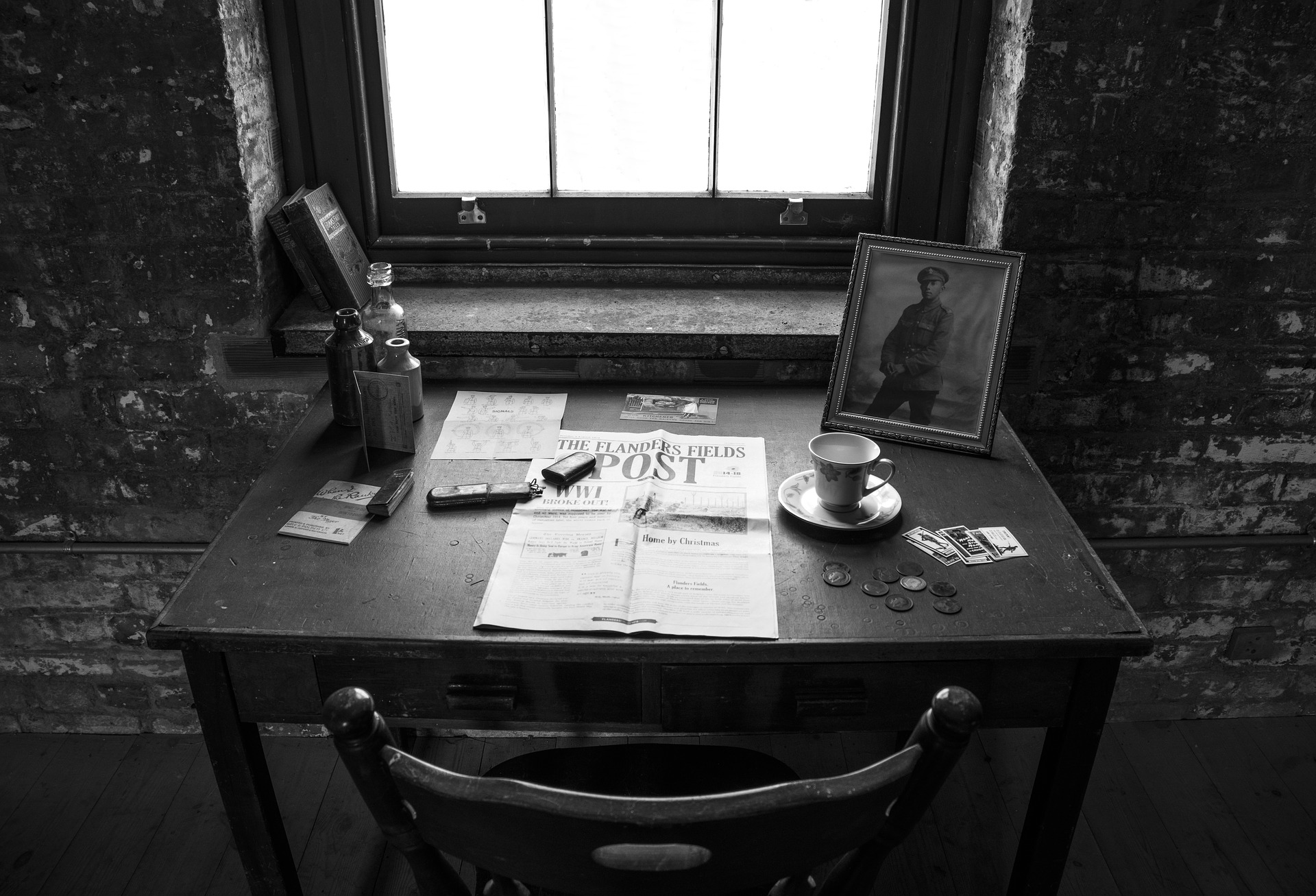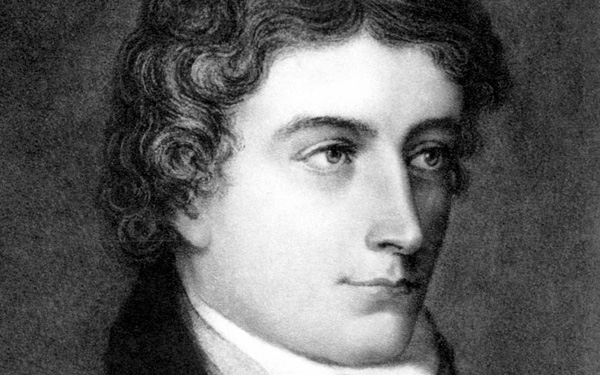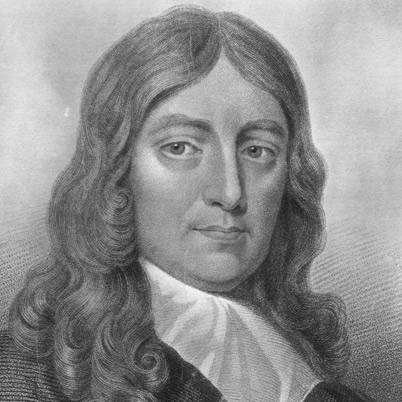John Milton- The exponent of grand style in English language, John Milton (1608 – 1974) was born to a composer father in Bread Street, London. Paradise Lost is his magnum opus and it is considered to be one of the greatest verses of English poetry. He was a Puritan poet, a man of letters, polemicist and a civil servant who had served the British Commonwealth. He was imprisoned for his strong sentiments on prelacy and popery. The later years of his life was spent in solitude and abject poverty, with his blindness as the only company. He made excessive use of blank verse and his works revolved around the theme of liberty of press, freedom of expression and individual conviction. Areopagitica is his best-known prose.
Setting of Sonnet 19-
In the latter phase of his life, Milton had turned blind after facing lot many adversities in life. The sonnet, When I Consider How my Light is Spent was the fruit of this ‘lightless’ period of his life. He went completely blind in the year 1651 and the sonnet 19 was penned in the year 1652. Hence we can deduce the setting of the poem as the outcry of a man who have been alienated from the world of light towards the twilight years of his life.
Poetic Devices in Sonnet 19-
Binaries: “light” and “dark”, “death” and “soul”, “useless” and “work”, “denied” and “serve”
Personification:
Line 8- “Patience”
Line 14- “they”- virtues of truth
Metaphor: “darkness”, “bidding speed”, “Land and Ocean without rest”
Style-
“When I consider how my light is spent, (A)
Ere half my days, in this dark world and wide, (B)
And that one Talent which is death to hide(B)
Lodged with me useless, though my Soul more bent(A)
To serve therewith my Maker, and present(A)
My true account, lest he returning chide; (B)
“Doth God exact day-labour, light denied?” (B)
I fondly ask. But patience, to prevent(A)
That murmur, soon replies, “God doth not need(C)
Either man’s work or his own gifts; who best(D)
Bear his mild yoke, they serve him best. His state(E)
Is Kingly. Thousands at his bidding speed(C)
And post o’er Land and Ocean without rest: (D)
They also serve who only stand and wait.” (E)
With the biblical context and change in mood, the sonnet reflects the characteristics of Baroque period writings. There is a stress on balancing the mood and tone of the setting in the poem. The denial is complemented by acceptance in the end and the contrast creates the balance. The verse follows typical Petrachan structure in form, rhyme and meter, which makes it distinct from its Elizabethan counterpart. Each line has a melodic setting with an alternating end rhyme scheme.
Summary of Sonnet 19-
The sonnet 19 is a self-examination and self-realisation. Considering it with the autobiographical elements, the reader is able to gauge the state of the speaker’s mind. Since the poet had lost his sight even before he was half way through his life, and is no longer able to use his most precious gift of writing, he finds himself alienated from the world around him. He is introspecting his situation as a blind in the world of light and considering what use is of his talent when he longer can connect to the physical world around him. His pain is aggravated as he wonders if God would be dissatisfied at his inability.
Time answers his doubts by pointing at the fact that God does not ponder over what a man is doing or what he attains. What is important is that a man does not live a life of unworthiness. Idleness is not tolerated and there is always something meant for man. If he is patient enough and has an honest heart to work through any difficulty, he shall be accepted by his Lord as well as rewarded by the same. Those who do not remain ignorant even at the verge of adversities shall be rewarded for his genuine intention and true heart.
Critical Analysis of Sonnet 19-
With tightly packed precision in form and language, the Petrarchan sonnet has a commanding structure. The lines are set in iambic pentameter with paragraph being the basic structural scale. The rhetoric in the verse is quite evident throughout.
The sonnet begins with a regretful tone of a person who looses his vision even before he had lived half of his life. The profound grief is so full that he starts wondering what he is going to do with his gift of writing with no aid of his eyes. He is afraid that his “maker” is going to get offended for his ignorance of his talent, like the biblical analogy. He is confused whether the lord almighty expects him to make use of his dexterity even with his disability. The entire octave is the reflection of the emotional jeopardy one’s mind is in when he is deprived of his abilities all of a sudden.
The sestet presents the change in emotional state of the speaker. His confusion is answered by the patience with which he waited for an answer from his Lord. The God does not consider the work one puts in or the results, all that matters to him is that his creations do not stay idle to their skills at hand. Man is made to prove his worth as an intelligent being and not someone to stay ignorant of his talents. In his land there is no rest and no fatigue and also only those stand in chance to be part of his realm who struggle with perseverance and patience.
Central Idea of Sonnet 19-
The octave of the sonnet moves around the experience of a loss felt by a human in his life and as it develops and reaches the sestet, a realisation dawns upon the speaker. The idea of loss and gain is dominant throughout. The poem is divided into two phases- the questioning and the acceptance. The man and God, and what the latter expects from the former is hugely discussed here.
Tone of Sonnet 19-
The first two quatrains of the octave is dominated by the dark state of mind filled with confusion and anguish of the speaker who turns completely blind in the later part of his life. The light filled in the entire physical world, which he can no longer connect to, disturbs him. His soul broods in this darkness in the beginning. There is a gradual shift to a completely contrasting tone in the final sestet. There is realisation and acceptance. The tone has a positive vibe that can be felt filling into the speaker’s life by accepting his fate and moving on to prove his worth.
Conclusion- However hard a man’s surroundings might be and whatever be his sufferings, he is supposed to prove his worth in this world through hard work and dedication rather than pitying himself about the lost opportunities. This sonnet is Milton’s way of propounding this idea to the public. Being at the receiving end of one of the worst possible sufferings in the light of the world perspective, the poet speaks out of his experience on how God looks upon the hard work rather than the outcome of the work. Let whatever be the condition one is, it is a man’s primary duty in this world to earn his worth by working with whatever possibilities he is adorned with. That is where God’s satisfaction lies. Accomplishments are for man’s satisfaction and the genuine intention to work his way through makes the almighty happy. Man was not made to sit idle neither in the name of God nor in the name of shortcomings.
Though the sonnet beings in a note of suffering felt by a person who feels he is being deprived, however, towards the end a sense of understanding dawns upon him. He understands all the struggle is just a trial and not a reason to sit idle and brood.
Some online learning platforms provide certifications, while others are designed to simply grow your skills in your personal and professional life. Including Masterclass and Coursera, here are our recommendations for the best online learning platforms you can sign up for today.
The 7 Best Online Learning Platforms of 2022
- Best Overall: Coursera
- Best for Niche Topics: Udemy
- Best for Creative Fields: Skillshare
- Best for Celebrity Lessons: MasterClass
- Best for STEM: EdX
- Best for Career Building: Udacity
- Best for Data Learning: Pluralsight















